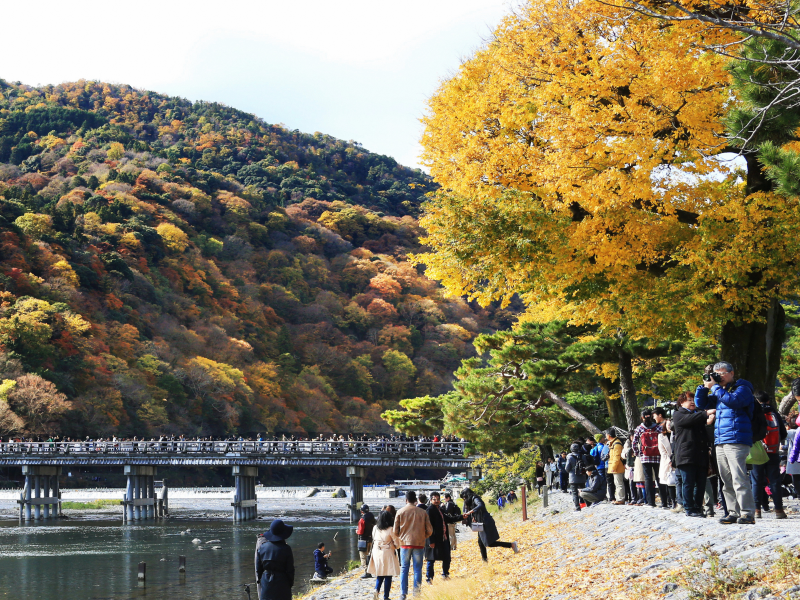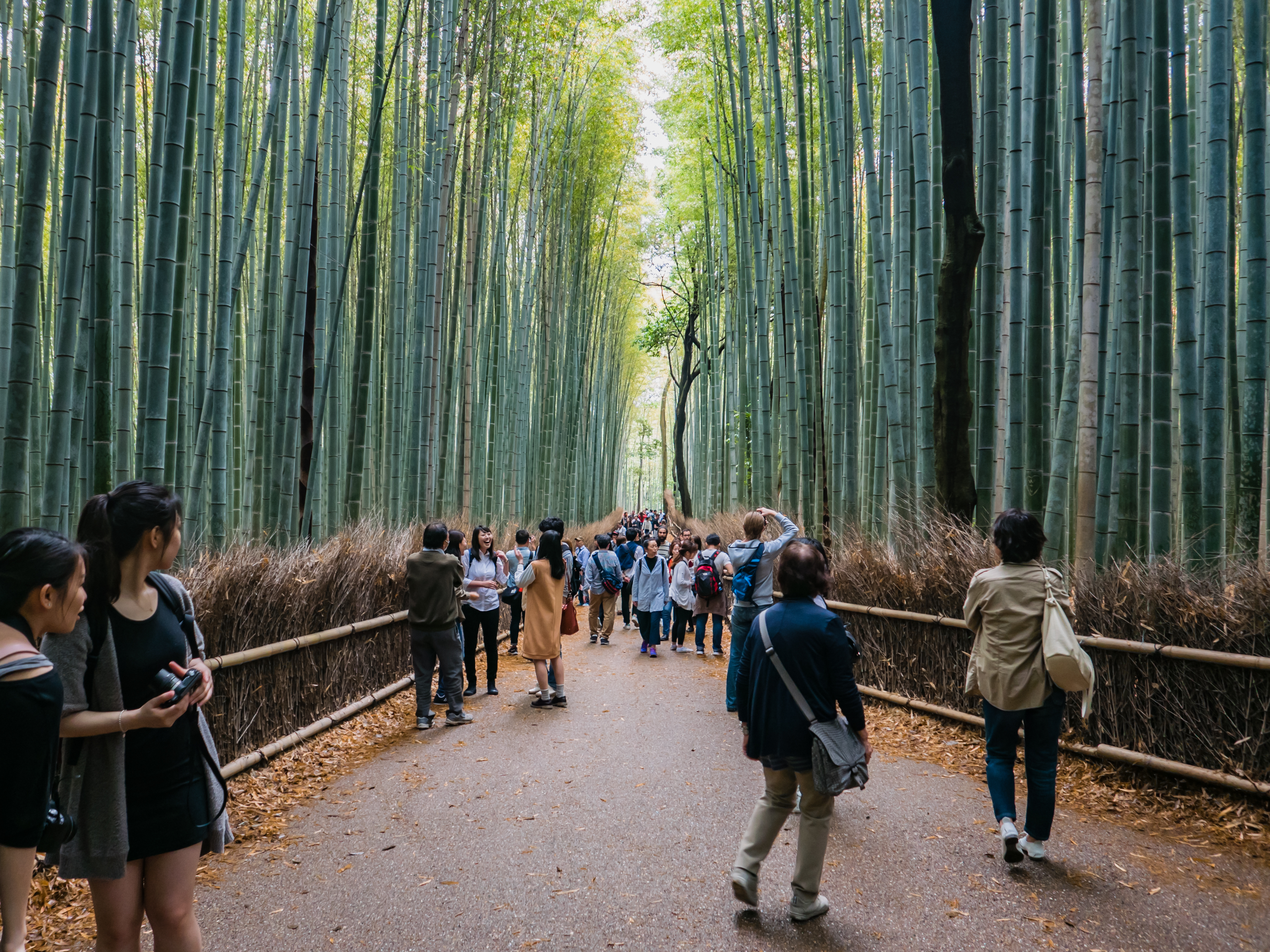- Japan received a record 32 million visitors in 2019, approximately one-third of whom were Chinese.
- But tourism in Kyoto is taking a hit amidst fears of the coronavirus spreading, and a group of local shopkeepers is sharing photos of empty landmarks that are usually overrun by visitors.
- Japan is one of several tourism-dependent Asian countries, including Thailand, that are feeling the effects of China’s COVID-19 outbound travel ban.
- Follow coverage of the coronavirus (COVID-19) on Business Insider here.
- Visit Business Insider’s homepage for more stories.
Known for its temples, monkey park, and bamboo forest, the scenic neighborhood of Arashiyama on the outskirts of Kyoto has become a social media sensation. Over the past few years, it has accrued 649,000 photo tags on Instagram, many taken during red maple and cherry blossom seasons. Its bamboo forest alone has 72,700 tags.
More often than not, the path through Arashiyama’s bamboo forest is flooded with sightseers – but in the wake of the COVID-19 outbreak in China, which has infected over 73,000 and killed more than 1,800 worldwide, Kyoto shopkeepers have noticed a downtick in the number of tourists.
“Even though it is a low season, there are fewer visitors than usual due to the influence of the coronavirus!” the neighborhood hospitality association tweeted on February 15.
In 2019, Japan received a record 32 million tourists, and Kyoto accordingly received an influx of visitors. While data reflecting the impact of COVID-19 on tourism to Japan won’t be available until later this month, according to AP’s Grant Peck, locals have already been commenting on it.
Shopkeepers near major attractions in Kyoto shared their observations of decreasing visitor traffic with local newspaper Kyoto Shimbun, Casey Baseel reported for Tokyo-based news site SoraNews24. "This is the most dramatic drop in traveler traffic I've seen [in over 30 years]," a shopkeeper near Kiyomizudera temple told Kyoto Shimbun. Another, who works near Fushimi Inari Taisha Shinto shrine, said that while 200 tour buses usually come in per day, "now it's just a few." A third, who works near Kyoto's Golden Pavilion, estimated that crowds are half the size they usually are in February.
In response, local shopkeepers have created an "empty tourism" campaign, enticing visitors with images of uncrowded attractions, Emiko Jozuka reported for CNN Travel.
嵐山おもてなしキャンペーン
~スイてます嵐山・今こそ!おこしやす~
嵐山の5つの商店街が合同でキャンペーン。
比較的閑散期でもあり、またコロナウィルスの影響で通常より来訪者が少ない今!
ゆったりと嵐山を訪問してもらい、各お店もいつも以上のおもてなしの心でお迎えするキャンペーン pic.twitter.com/ZoQtE8PR0M— 嵯峨嵐山おもてなしビジョン推進協議会 (@sagaarashiyamao) February 14, 2020
Jozuka identified the photos and translated the captions.
"It's been a while since there were more monkeys than humans," one image reads. Another shows tourist-favorited Togetsukyo Bridge without visitors. Accompanying the image of the bamboo grove are the hashtags "#nopeople" and "#nowisthetime."

Tourism-dependent Asian countries are feeling the effect of China's travel restrictions
In late January, China instituted a ban on all outbound group travel from the country, and earlier this month, Japan banned residents of China's Hubei and Zhejiang provinces from traveling to Japan.
"It's not like there are no Chinese at all," Tomotsugu Mizukami, spokesman for the Kyoto City Tourism Association, told Peck on Monday in a telephone interview. "But the effect is clearly visible."
Over 150 million Chinese tourists traveled outside the country in 2018, and tourism-dependent Asian countries such as Thailand are feeling the effects of China's travel restrictions acutely. In 2019, 9.6 million Chinese tourists visited Japan, comprising one-third of Japan's total visitors. Nikkei Asian Review estimates that COVID-19 could have a $23 billion impact on the country's GDP.
The 2020 Summer Olympics are still set to take place from July 24 to August 9 in Tokyo, with the Olympic Torch Relay kicking off in Fukushima on March 26. "I want to again state clearly that cancellation or postponement of the Tokyo Games has not been considered," Tokyo Olympics organizing committee president, Yoshiro Mori, said at a Tokyo gathering last week. "Let me make that clear."

